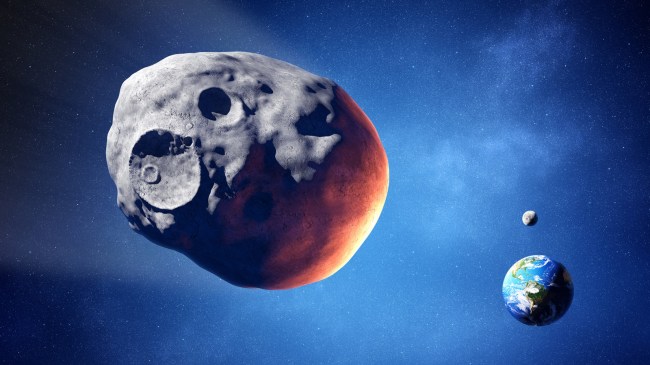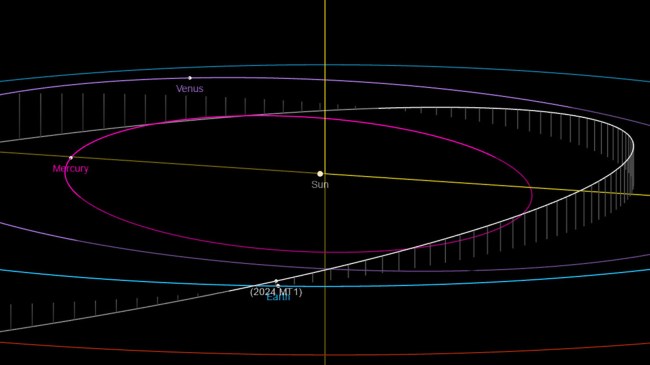iStockphoto
Asteroid 2024 MT1 is headed towards Earth at over 40,000 MPH and will pass by our planet on Monday, on July 8 at a range of just 936,000 miles, meaning that NASA has classified it as being “Potentially Hazardous.”
While 936,000 miles may sound like a long distance and nothing to really be concerned about, in space terms it is actually tremendously close.
NASA defines a Potentially Hazardous Asteroid (PHA) as any asteroid “with a minimum orbit intersection distance (MOID) of 0.05 AU or less and an absolute magnitude (H) of 22.0 or less.” Put in layman terms, the asteroid has to be more than 492 feet and approach Earth within a 4.6 million mile radius.
Asteroid 2024 MT1, an Apollo class asteroid, has an absolute magnitude (H) of 23.277 and a MOID of 0.00930715 AU.
It is, however, considered to be a NEO, or Near-Earth Object since its orbit puts it within 1.3 astronomical units (AU) of the sun. An AU is the average distance between Earth and the Sun, or about 93 million miles.
So the distance of 936,000 miles from 2024 MT1 to Earth is significantly less than the 93 million miles required for it to be classified as a NEO.
926,000 miles is also only around four times the distance between Earth and its moon.
Asteroid 2024 MT1 is about 260 feet in diameter, so while it is not technically classified by NASA as being “potentially hazardous,” should it make contact with Earth at more than 40,000 MPH it still could be devastating.
Just two weeks ago, the mountain-sized “planet-killer” Asteroid 2011 UL21, which was classified as a Potentially Hazardous Asteroid by NASA, flew by Earth at a speed of 58,000 MPH at a distance of around 4.1 million miles. That was the closest that asteroid had come to Earth in 110 years.
Should one of these asteroids deviate from its orbit unexpectedly because of Earth’s gravitational pull (called the Yarkovsky Effect), we are currently unprepared with a foolproof way to stop it from smashing into the planet.


